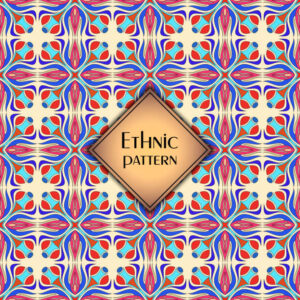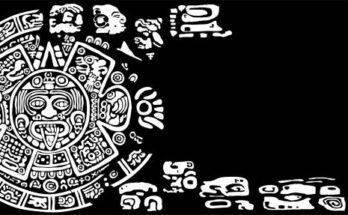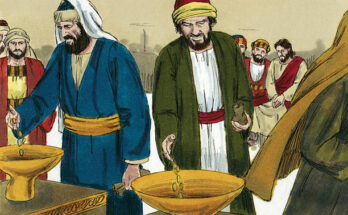Mortality, the inevitability of death, has been a subject of profound contemplation throughout human history. Different cultures, religions, and philosophical traditions offer unique perspectives on what happens after death, and the existence of post-death experiences. This article delves into various viewpoints on mortality and the afterlife, shedding light on the diverse ways in which different societies and individuals grapple with the mysteries surrounding death.
Religious Perspectives
 (Photo from iStock)
(Photo from iStock)
Religious beliefs play a significant role in shaping views on mortality and what comes after death. Many Christians believe in the existence of heaven and hell, where the soul goes after departing from the body. The specifics of these beliefs can vary among denominations, with some emphasizing judgment, redemption, and eternal life.
Similarly, Islam teaches the existence of an afterlife, with the soul being judged based on its deeds in the earthly life. The Quran describes paradise and hell as destinations for the righteous and the wicked, respectively. Islamic beliefs also encompass the idea of resurrection, where the body is reanimated for judgment.
In Hinduism, the cycle of reincarnation is a central theme. Hindus believe in the continuous cycle of birth, death, and rebirth (samsara) until the soul achieves moksha, liberation from this cycle. The actions of one’s past lives, known as karma, influence the circumstances of the current life and subsequent rebirths.
Contrasting with these monotheistic traditions, many indigenous and animistic religions view death as a transition rather than an end. Some Native American cultures, for example, believe in a spirit world where the deceased continue to exist, guiding and influencing the living.
Philosophical Perspectives
 (Photo from iStock)
(Photo from iStock)
Philosophy provides a platform for exploring mortality without relying on religious dogma. Existentialist thinkers, such as Jean-Paul Sartre and Albert Camus, grappled with the idea of an indifferent universe and the individual’s responsibility to create meaning in their lives.
In contrast, philosophical traditions like Buddhism focus on the impermanence of all things, including life. Buddhists believe in the cycle of birth, death, and rebirth, emphasizing the importance of transcending the cycle through enlightenment and the cessation of craving.
Atheistic and agnostic perspectives within philosophy often center on the idea that death represents the end of consciousness. Figures like Bertrand Russell have argued that the fear of death is a natural part of the human experience, but one that can be addressed through a rational acceptance of the inevitable.
Cultural Perspectives
 (Photo from iStock)
(Photo from iStock)
Cultural attitudes toward mortality can vary widely, even within societies that share a common religious or philosophical background. In Western cultures, death is often viewed with a sense of fear and avoidance. Discussions about death are sometimes considered taboo, and the focus is on prolonging life through medical advancements.
Conversely, some Eastern cultures, particularly those influenced by traditions like Buddhism, may approach death with greater acceptance and see it as a natural part of the life cycle. Practices such as ancestor veneration in Confucianism and Shintoism highlight a cultural connection to the deceased, fostering a sense of continuity between the living and the dead.
Scientific Perspectives
 (Photo from iStock)
(Photo from iStock)
The scientific worldview, shaped by empirical evidence and rational inquiry, offers a perspective on mortality grounded in the natural world. However, the question of what happens to consciousness after death remains unanswered and lies at the intersection of science and philosophy.
Near-death experiences (NDEs) provide a fascinating bridge between scientific inquiry and the exploration of the afterlife. Some individuals who have experienced NDEs report vivid, otherworldly encounters, including a sense of traveling through a tunnel, encountering deceased loved ones, or feeling a profound sense of peace. While these experiences are subjective and not universally accepted as evidence of an afterlife, they contribute to the ongoing dialogue about the nature of consciousness and death.
Scepticism and Critical Perspectives
 (Photo from iStock)
(Photo from iStock)
Amidst the various beliefs and experiences surrounding mortality, scepticism and critical inquiry remain essential components of the conversation. Sceptics argue that the absence of empirical evidence for an afterlife warrants a default position of agnosticism. They emphasize the importance of relying on observable phenomena and verifiable evidence in shaping our understanding of the world.
Prominent sceptics, such as Richard Dawkins and Sam Harris, contend that the burden of proof lies with those making claims about an afterlife. They advocate for a scientific, evidence-based approach to understanding consciousness and assert that extraordinary claims require extraordinary evidence.
Personal Perspectives and Coping Mechanisms
 (Photo from iStock)
(Photo from iStock)
Individuals often develop their own perspectives on mortality based on personal experiences, cultural background, and emotional needs. Others may find meaning in the impermanence of life, emphasizing the importance of living fully in the present moment.
Coping with the loss of a loved one can lead individuals to explore various avenues. For understanding and making sense of death. Grief counselling, support groups. And therapeutic approaches provide spaces for individuals to share their experiences. Express their emotions, and navigate the complex terrain of loss.
Conclusion
The myriad views on mortality and post-death experiences reflect the rich tapestry of human thought, culture, and spirituality. From religious doctrines providing a framework for the afterlife to philosophical inquiries into the nature of existence. Each perspective offers a unique lens through which individuals and societies make sense of the profound mystery that is death.
In a world where beliefs about what happens after death can be deeply personal and culturally nuanced. It is essential to approach these discussions with empathy and an open mind. The exploration of mortality, whether through religious faith, philosophical contemplation, scientific inquiry. Or personal experience, contributes to the ongoing human endeavour to understand the nature of life, death. And what, if anything, lies beyond.
The universal truth that all humans die at some point, regardless of where or how we were born, is what connects people from all civilizations. Different cultures, however, have different ideas about death and what happens to a deceased individual. Certain cultures view death as including various circumstances.




